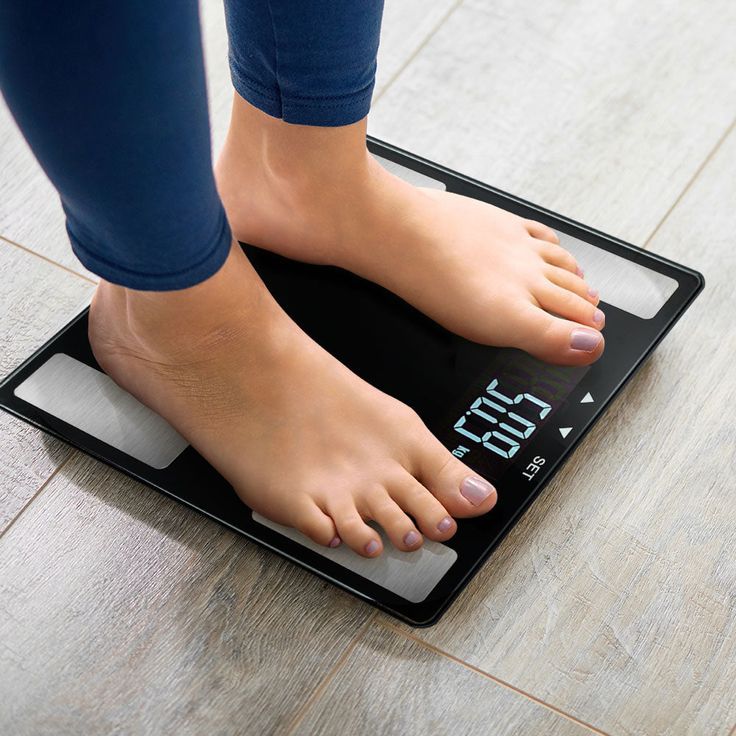Have you ever wondered why some people seem to shed pounds effortlessly while others struggle despite their best efforts? It can be frustrating to see a friend lose weight quickly while you’re stuck at the same number on the scale. Is it genetics, metabolism, diet, or something else?
The truth is, weight loss is not a one-size-fits-all process. Multiple factors influence how quickly someone can lose weight, including metabolism, genetics, hormones, lifestyle, and even gut bacteria. Understanding these factors can help you develop a realistic, science-backed approach to weight loss that works for your body.
Let’s dive into the surprising reasons why some people lose weight faster than others and what you can do to optimize your results!
1. Metabolism: The Speed of Your Body’s Engine
Metabolism plays a key role in how fast you lose weight. It refers to the rate at which your body burns calories to sustain essential functions like breathing, digestion, and circulation.
Why Some People Have a Faster Metabolism:
- Genetics: Some people are born with a naturally higher metabolic rate.
- Muscle Mass: The more muscle you have, the more calories you burn—even at rest.
- Age: Younger individuals tend to have a faster metabolism than older adults.
- Gender: Men typically burn calories faster than women due to higher muscle mass.
How to Boost Your Metabolism:
- Strength training to build muscle
- High-intensity interval training (HIIT) to maximize calorie burn
- Eating protein-rich foods to increase the thermic effect of food
- Drinking cold water to stimulate calorie burning
While metabolism plays a role, it’s not the only factor influencing weight loss speed. Let’s explore more surprising reasons.
2. Genetics: Are You Programmed to Lose Weight Slowly?
Your genetic makeup can affect how quickly or slowly you lose weight. Some people inherit genes that make them more efficient at storing fat, while others have genes that allow them to burn fat more easily.
Genetic Factors That Influence Weight Loss:
- FTO Gene (Fat Mass and Obesity-Associated Gene): Some variations of this gene are linked to higher body fat retention.
- APOE Gene: Influences how the body metabolizes fats and responds to different diets.
- PPARG Gene: Affects how the body stores fat and processes carbohydrates.
Can You Overcome Genetic Limitations?
Yes! While you can’t change your genes, you can modify your environment and lifestyle to work around genetic predispositions. Regular exercise, mindful eating, and choosing the right diet for your body type can make a significant impact.
3. Hormones: The Silent Weight Regulators
Hormones play a crucial role in weight loss. If your hormones are out of balance, losing weight can feel nearly impossible.
Key Hormones That Affect Weight Loss:
-Insulin: Regulates blood sugar; high insulin levels promote fat storage.
- Cortisol: The stress hormone; elevated levels can lead to weight gain, especially around the belly.
- Leptin: The satiety hormone; resistance to leptin can make you feel hungrier.
- Ghrelin: The hunger hormone; increases cravings and appetite.
How to Balance Your Hormones for Weight Loss:
- Reduce processed sugar and refined carbs to keep insulin levels stable.
- Manage stress through meditation, yoga, or breathing exercises to reduce cortisol.
- Get enough sleep to regulate leptin and ghrelin levels.
- Eat healthy fats and fiber-rich foods to maintain hormonal balance.

4. Diet: It’s More Than Just Calories In, Calories Out
The type of food you eat can dramatically affect how quickly you lose weight. Some diets are more effective for weight loss due to their impact on metabolism and appetite control.
Why Some Diets Work Faster Than Others:
- Low-Carb Diets (Keto, Atkins): Reduce insulin levels, leading to rapid fat burning.
- Intermittent Fasting: Helps regulate insulin and increases fat oxidation.
- High-Protein Diets: Increase metabolism and promote muscle preservation.
- Whole-Food, Plant-Based Diets: Reduce inflammation and optimize digestion.
Choosing the right diet for your body type and lifestyle can speed up weight loss significantly.
5. Gut Bacteria: The Hidden Weight Loss Factor
Your gut microbiome—the trillions of bacteria in your digestive system—plays an essential role in metabolism, appetite, and fat storage.
How Gut Bacteria Affects Weight Loss:
- Certain bacteria, like Firmicutes, are linked to weight gain, while others, like Bacteroidetes, promote weight loss.
- A healthy gut improves digestion and nutrient absorption.
- An imbalanced gut microbiome can lead to increased cravings and fat storage.
How to Improve Gut Health for Weight Loss:
- Eat fermented foods (yogurt, sauerkraut, kimchi) to introduce good bacteria.
- Consume fiber-rich foods (vegetables, fruits, whole grains) to feed beneficial bacteria.
- Avoid excessive antibiotics, which can disrupt the gut microbiome.
6. Physical Activity: More Than Just Exercise
Exercise is an obvious weight loss factor, but not all workouts yield the same results. Some people burn calories more efficiently due to differences in activity levels and exercise routines.
Why Some People Burn More Calories:
- Non-Exercise Activity Thermogenesis (NEAT): Some people move more throughout the day (walking, fidgeting, standing) without structured exercise.
- Type of Exercise: Strength training builds muscle, increasing resting calorie burn, while cardio burns calories during the workout.
- Exercise Consistency: Those who stay active daily lose weight faster than occasional exercisers.
To maximize weight loss, combine strength training, cardio, and active daily movement.
How to Optimize Your Weight Loss Journey
Weight loss speed varies from person to person due to metabolism, genetics, hormones, diet, gut bacteria, and activity levels. While some factors are out of your control, many can be improved with the right lifestyle choices.
Key Takeaways for Faster Weight Loss:
✅ Prioritize strength training to increase muscle mass and metabolism.
✅ Choose the right diet based on your body’s needs (low-carb, high-protein, intermittent fasting, etc.).
✅ Balance hormones by managing stress, sleep, and sugar intake.
✅ Improve gut health by eating probiotics and fiber-rich foods.
✅ Stay active throughout the day, not just during workouts.
If you’ve struggled with slow weight loss, don’t get discouraged! Your body is unique, and with the right approach, you can achieve lasting results.
Have you experienced different weight loss speeds compared to others? Share your thoughts in the comments! And if you found this article helpful, share it with your friends and family—they might need these insights too!


